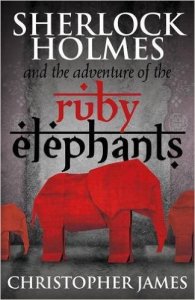When the going is good: momentum in poetry and what to do with it
A few months ago I wrote a blog about whether it was possible to retire from poetry. I was reflecting on that sense of the uphill struggle – that feeling that you’re writing some great things, but for whatever reason they aren’t connecting. The reasons could be manifold. It could be that you’ve lost perspective – the cure is always to read more; young, old, or dead poets, it doesn’t matter – just immerse yourself in something new and different. It will restore your sense of what’s good. You often do not apply your usually reliable critical judgement and reader’s ear to your own writing. Revisiting your work after reading others’ best work can be a revelation. Weaknesses previously quite invisible suddenly reveal themselves.
It could be that your poems are too niche (I wrote 65 poems about polar explorers and expected them to sell like Death of a Naturalist for goodness sake). It could be that you’ve forgotten how to ‘socialise’ your poem – something Andrew Motion encouraged me to do when he taught me briefly at UEA. How do you let your reader in? How hard to you expect them to work? How will you reward them for their efforts?
For whatever reason, everyone hits that brick wall at some point – that feeling that no one’s listening. Simon Armitage, famously described this state as ‘talking down a toilet.’ And coming from one of the most gifted and popular poets in the land, this was depressing indeed. He said this at a time when poetry was more marginalised than it is now – sales of poetry are at an all time high. Now, as Poet Laureate, he can hardly quibble about lack of audience. His excellent poems deserve to be read and I’m pleased that they are.
But there’s a quite different state to that feeling of dejection. It’s called momentum. Suddenly things start happening for you. There’s an unexpected invitation to read. There’s a competition win, or a good placing in a major competition. You land a poem in a magazine like Poetry London or the Rialto. You finally get that offer from the publisher. You’re asked to write an article or run a prestigious workshop.
It’s a giddy feeling and I was lucky enough to experience it. In March 2009 I won the National Poetry Competition for my poem Farewell to the Earth. The incredible shock and delight of the recognition was intoxicating. As was the champagne. The prize giving at a London club was deliriously enjoyable. Gryff Rhys Jones was there with a camera crew and interviewed me. He asked me how I started off writing poetry. I told him I thought it was a symptom of adolescence. ‘What,’ he said. ‘Like spots?’
Merseybeat legend, Brian Patten, presented the prize and sent me a postcard the next day of him and Christopher Reid sitting in a tin bath. There was an article about me and my poem in The Guardian. Someone made me a Wiki page. I had barely banked the cheque (not lost it on the Tube home as Carol Ann Duffy did when she won the NPC) when I received a commission to write a poem for the Tate based on a First World War painting. I was invited to a party on the South Bank by Alan Yentob and shook Valerie Eliot’s hand. The winning poem ended up in the Forward Book of Poetry and the high point was an offer from Arc Publications to take my second collection. There was nothing more I could wish for. I’d made it.

Then? Nothing. 2010 was my slowest ever year for poetry. The Arc collection was taking much longer than expected to appear. My previous book had appeared in 2006 and I had a pile of poetry that was gathering dust. The initial euphoria of the win had worn off. I was still plugging away at work doing exactly what I did before. I went to a few readings and felt a modicum of resentment. One poetry publisher I met at a festival looked me up and down and said: ‘Oh, so you’re Christopher James’ and walked away. I’m not sure what I expected to happen. TV? Radio? An offer to become a poetry lecturer or critic? Perhaps my expectations were set too high. This was poetry after all. Remember the rules – no one gets rich on it. You can dine out on it, but someone’s got to pay the bill.
Things picked up again – I’ve some other collections. There were other wins and enjoyable festivals, readings and workshops. Fortunately I wrote some more good poems too. But I never gain quite got that extraordinary feeling of being plucked from ‘the crowd’ that ‘flowed over London Bridge, so many.’
Just this last month or two, I’ve had a rash of successes. First place in the Crabbe/Suffolk Poetry Society competition, judged by Tiffany Atkinson, second place in the McLellan, judged by Sean O’Brien and I’m shortlisted for the Wells one too – judged by Mr Armitage himself. I’ve started to get that tingling feeling of momentum again. Except this time I’m wise enough to manage my expectations, to enjoy success when it comes and appreciate any good things for what they are: a bonus. The real reward of poetry is realising an idea – and seeing it, miraculously on the page in front of you. Paul Muldoon once said: ‘Most poets can achieve take off. Most can keep a poem at cruising altitude but very few know how to bring them into land.’












